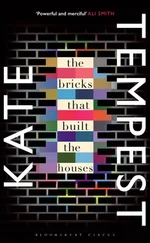At Ravi’s shout, a forest officer fired the rubber bullet. Missed.
In answer, the elephant opened her lungs and screamed. My stomach dropped; my dials hit the red zone.
Another gunshot — the elephant’s rear leg buckled. The rubber bullet had caught her in the haunch. She fled, hobbling, and the team was sprinting to the ditch and before anyone could tell us otherwise, Teddy and I were sprinting too.
The calf was on its back, stubby legs held aloft. It bleated, dazed, while Ravi and Bobin tugged a sling around its torso and, with the help of the team, dragged the calf aboveground. It lay on its side, panting. The mother bellowed from afar. As Bobin undid the harness, Teddy knelt to the level of its eye, a black magnet to Bobin’s every move.
Finally, the team propped the calf on its feet. Ravi barked at the others to flee. He grabbed my arm, the mother thundering toward us. I called for Teddy, still running, unsure if he was behind me or beside the calf, and getting no response I wrenched my arm free, even as the elephant’s thud was still hammering from beneath the earth.
I turned to see Teddy filming. The camera was fixed to his chest in order to steady the shot. His face was rigid with fear, barely breathing or blinking as the elephant trundled up to her calf. Twenty yards stretched between Teddy and the elephants, a distance the mother could have closed in seconds. Yet he stood there, as still and spellbound as the rest of us.
The cow touched the calf on the crown, the nape, the wobbly trunk, which lifted, weakly, like a question mark. Her trunk ministered to his in ways at once intimate, familiar, mysterious.
The mother elephant raised her head, leveling her gaze upon Teddy. What happened next would become a subject of debate during an NPR interview, the question of whether the elephant’s gesture was, as Teddy would claim, a sign of gratitude. His fellow guest, a quippy animal ethologist, would dismiss the claim, accusing Teddy of “ human- centric assumptions of animal consciousness.”
“That wave, as Ted here put it, could have meant anything. It could have been a sign of anger, even warning. It could have been joy. But gratitude is a human expression, learned by hand-reared creatures. I mean, look,” the ethologist would add, with so baffled a laugh it was like Teddy had claimed the elephant had curtsied, “a wild animal does not say thanks!”
I would have locked horns with that guy. Had he ever watched a calf suckle its trunk while it slept, whimpering from some secret dream? Had he ever watched Juhi, the oldest girl calf and self-assigned matriarch, drape her trunk over the youngest at a stranger’s approach? I’d witnessed these moments on my occasional solo shoots, though none would make it into the final cut. By then it was Teddy’s film, the whole thing practically shorn of my presence. I used to believe I was blindsided by how it happened, but I should’ve seen where I stood, ever at the periphery of things.
The confrontation lasted only a few moments. The mother elephant whipped her trunk up and down, three deliberate times. Teddy held the shot long after she turned and glided on, her calf in tow, a blot barely higher than the bushes on either side. Through my headphones, I heard the shivering leaves and, beneath that, at a frequency felt only by me, a pulse of envy.
Each night the Gravedigger tossed in his sleep. He woke breathless with visions of ropes and rough hands. Rifles fired through his dreams.
His cries woke the girl calf that lay in the cell next to his. She rumbled low and testy through the dark, then fell quickly back to sleep, forelegs bundled, mouth ajar. He closed his eyes, his mother flitting across his lids, as warm and alive as she’d been not five days before. He stared at the girl calf through the web-strewn slats, the pink wedge of her tongue. He stuffed the tip of his trunk into his mouth.
The anakoodu was built of bamboo and dark mossy wood, with a high tin roof that chattered when it rained. A fence split the space into his and hers, each furnished with a stuffed burlap sack and nothing else, only the ghosts of other calves who had come before them. The air sagged with their smells.
During the day, the Gravedigger ran his trunk around the bars. He patted the ropes that bound them together. He climbed up the bamboo with his front feet, reaching his trunk through the slats. His snout closed like a fist around passing scents. Even after he grew tired of climbing, he kept tracing the knots, crisscross, crisscross. It became a thing he had to do, for buried reasons.
§
The pappans were hotheads, buzzing, restless, rotten smelling. Five were assigned to the anakoodu. The Gravedigger hated all but Old Man.
The days began and ended with Old Man, who was not the oldest and yet seemed a higher authority than the others. They worked quickly and carelessly, but Old Man took his time in his steady assessment of the calves. He chiseled their toenails with a metal file. He oiled each crack and crevice. With firm fingers, he found the knots of hurt and rubbed them until the Gravedigger purred and the girl calf whined for her turn.
He was the only pappan who bent low and let them drape their trunks along his neck. He had no trunk with which to return the gesture and staunchly refused to allow their trunk tips into his mouth. Still it was a comfort, to touch and be touched.
Yet touch could be a cruel teacher. One day, Old Man stood before the Gravedigger in the anakoodu. In his fist was a long stick, capped by a metal talon.
!! said Old Man.!!
The Gravedigger stared. Old Man wore a strange new face, hard and blank as a wall. He reached out and tugged sharply on the Gravedigger’s left ear. The Gravedigger squealed, but Old Man kept pulling until the Gravedigger swerved to the left.
!!! said Old Man.!!!
A sharp tug to the Gravedigger’s right ear. He squealed, swerved right.
!!
!!!
!
!!!!
On and on until the Gravedigger could extract a meaning from each ugly note. Left! Right! Stand Still! Kneel! — the last learned by the whack of the stick across his flanks. Pain pulled his mind to a taut and terrible line, its only goal: to do whatever would prevent the pain.
Only at bathtime did the Gravedigger resist. He knew the bad hour was approaching by the tourists who thronged outside, chattering, buffooning, baring their teeth, cunning as monkeys. Their noises blurred to a hiss, coiling all around him until he could not breathe.
It began with a scraping sound; Old Man slid out two of the wooden boards, the square of sunlight parted by his shape. In the early days, Old Man tied a rope around the Gravedigger’s middle in order to tug him to the water. Once the Gravedigger learned not to tug back, to beetle along in silence, the rope was undone.
They proceeded in line: Old Man, the girl calf, the Gravedigger, and two more pappans. There was the spitter, who continually shot red tongues of paan out his mouth, and the squat one, whose breath simmered with liquor. Every so often, either the spit or the squat would bark at the Gravedigger, for reasons beyond his knowing. Sometimes he cut a hot fart to shut them up.
The crowd followed at a distance, clucking along, as all five stumped single file across the open and down a slope. There the trail spread into the riverbank. As soon as the Gravedigger caught a murky, algal whiff, he panicked and tried to turn back, but the pappans shoved him onward.
When they reached the banks, the girl calf trotted into the lake and stopped a few feet shy of Old Man, who took a wide stance on the rocks. Murmuring gently, he tossed water on her back. Occasionally he scooped a handful into his own mouth and gazed out over the breeze-pleated currents. The girl calf glittered in the sun, her hair bejeweled with droplets, her eyes drowsy with pleasure.
Читать дальше












